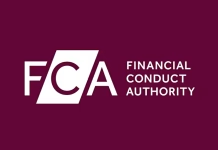A new FCA review of algorithmic trading firms has found improvements since 2018. While governance frameworks have matured, the FCA urged closer alignment with MIFID’s Chapter 29, highlighting deficiencies in governance, testing and surveillance under RTS 6.
The FCA has published findings from a multi-firm review into algorithmic trading controls. It says that many firms have strengthened governance since its last review in 2018 but that it still found material weaknesses in compliance oversight, testing procedures and market abuse surveillance. The review sampled ten principal trading firms of different sizes and business models and assessed their compliance with RTS 6.
It has found that: “The quality of self-assessment documents and the overall self-assessment process have improved since our 2018 review.”
But the FCA also said: “There was, however, a significant variation in the sophistication of firms and their level of compliance, even taking account of the nature, scale and complexity of their trading activities.”
Better suited firms had external auditors review their RTS 6 self-assessments, which “often resulted in recommendations and tracked actions for firms to complete, to further strengthen their compliance.”
At weaker firms, the FCA said more detail was often required with deficiencies being addressed more efficiently. “This included out of date policies and unclear processes and documentation which indicated a lack of formal governance and accountability,” it said.
The role of compliance in monitoring algo is also not uniform. The FCA found that: “In some firms’ compliance staff had very strong technical knowledge and provided strong challenge to algorithmic trading processes. “
Others fell short, with the FCA noting that: “the compliance functions of some firms did not have as strong technical knowledge of algorithmic trading. This meant the ability of compliance staff to challenge trading behaviours was limited.”
RTS 6 requires firms to conduct robust conformance and simulation testing. But the FCA said while most complied with Article 6 obligations, that in some cases procedure to conform were not well specced which led to substandard recordkeeping processes. In simulation testing the FCA found a starker contrast with some firms allocating significant resources to testing, while others did not: “Simulation testing carried out by some firms lacked sophistication or did not appear to consider a wide range of market scenarios.”
The FCA found all firms operated pre-trade controls, but oversight was not always clear.
The review said: “In certain cases, ownership of pre-trade and post-trade controls was poorly defined and not documented”.
Market abuse surveillance systems were stronger at larger firms, many of which had in-house tools which were operationally sound to deal with potential market abuse.
But the FCA also said: “In certain cases, firms had not done enough to update or invest in their market surveillance systems. This meant their surveillance was not developing commensurately with the nature, scale, and complexity of their trading activities.”
While the review results were mixed, the FCA stressed that: “This publication creates no new requirements for algorithmic trading firms and is intended to help them comply with existing requirements.”
©Markets Media Europe 2025












